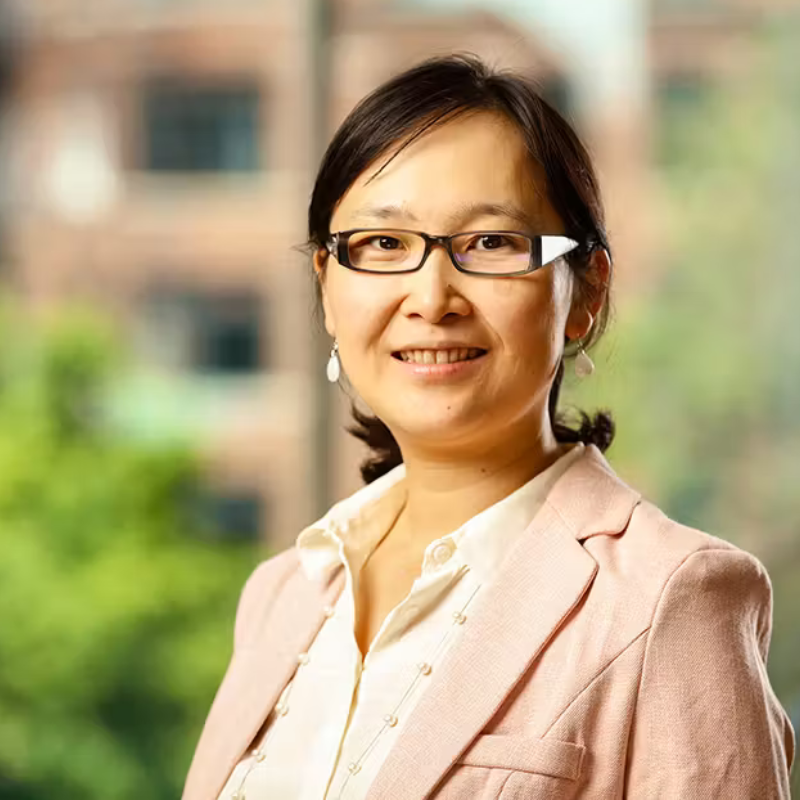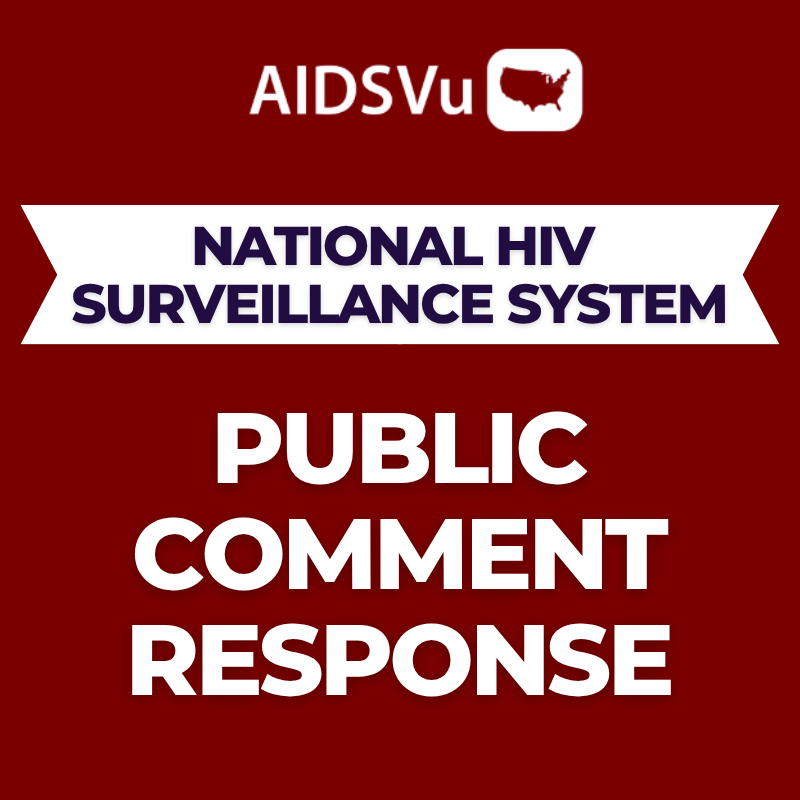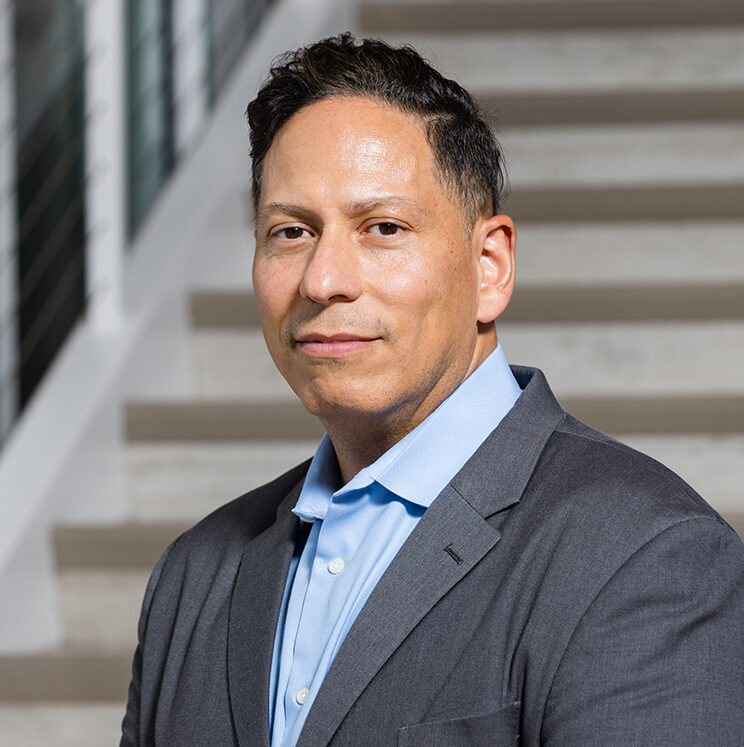Mackenzie Copley is the Co-Founder and CEO of One Tent Health, a nonprofit that provides free HIV-related services at events in medically underserved neighborhoods in Washington, D.C. Copley also serves on the Presidential Advisory Council on HIV/AIDS (PACHA).
Q: You co-founded and now serve as CEO of One Tent Health, a non-profit that provides free HIV-related services from 10×10 canvas tents in Washington, D.C. What inspired you to enter the HIV testing and advocacy field?
What inspired me to start One Tent Health was an experience I had volunteering about 10 years ago, when I was a senior in college. I was getting tested for HIV and feeling really nervous, scared – all of these different emotions about the results. I knew if that’s how I felt, other people must feel the same way too, and it made me want to do something about it. So, in the middle of my HIV test, I asked the nurse if she had any volunteer opportunities. She said “Yes,” and about a week later, I joined a team setting up free HIV testing outside of a grocery store in Washington, D.C. I loved the volunteering experience. I felt fulfilled, had a lot of fun, and it felt good helping people.
A few weeks in, I noticed a problem. Even though we were testing about 60 people a day, the group was turning away about 20 people who had waited in line and gotten all the way to the front. Eventually, I asked ‘why are we turning them away?’ The nurse explained to me that the group was private and for-profit, couldn’t make any money from them, and so decided not to help them. It just felt wrong to me. I asked if we could test them – and then I talked to the owner and made a case for it. He said no. Between the conversations and my 21-year-old head of steam, I decided to start a nonprofit to test everyone regardless of insurance status. That’s when I started One Tent with my co-founder Dr. David Schaffer, who was in medical school at the time, and is now about to start as the Director of Medical Toxicology at Prisma Health Upstate in South Carolina. We got to work for two years in the middle of the nights, while working other jobs, until we held our first testing event.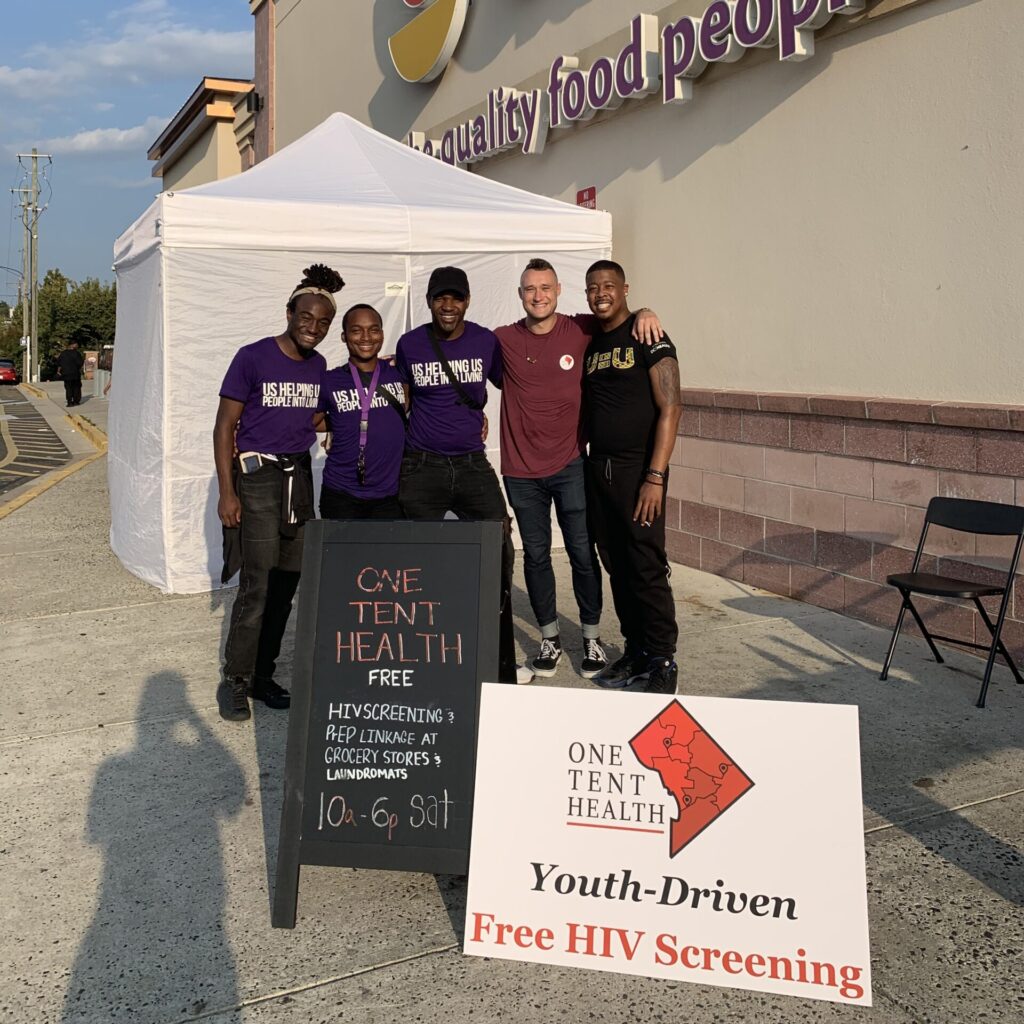
Q: Can you go into a little more detail about just what One Tent Health’s mission is and how One Tent Health directly impacts lives in Washington, D.C.?
Our mission may be the shortest one in the country: To save and extend lives. We try to keep it simple. What we do is take 10 by 10 canvas tents and put them in front of grocery stores, laundromats and convenience stores in the lower-income and most highly impacted areas of Washington, D.C. It’s truly all about minimizing barriers to care, particularly financial and time barriers.
When we launched services in 2017, we set up a tent with our first 12 volunteers and tested 18 people. Two days later, I went to my consulting job and quit. Since that point in time, we’ve grown to over 2,000 undergraduate volunteers across five different schools here in D.C.—Howard, Georgetown, GWU, American, and University of Maryland. We also now have fellows from the NIH, which has been really cool. We’ve screened or tested about 15,000 people for either HIV or COVID-19, because when the pandemic came in 2020, we noticed that the city didn’t have free testing on Sundays – which is when people are most free. So, we partnered with DC Health, and ended up offering all of Washington D.C.’s public COVID-19 tests on Sundays throughout the pandemic. Sometimes we would test 800 people at an event, and would almost always keep an HIV testing tent next to the COVID testing tent. Our services aren’t zero sum, we try to make them additive. So, in addition to the HIV screening – our core service – we also offer PrEP linkage, and have offered Narcan education and kits, and voter registration as well.
A highlight so far has been published evidence that’s shown we’ve been serving people well. A research group at Harvard published a paper about our outcomes a few years ago and found that we identify new cases of HIV at a rate of more than four times the city’s average. Our positivity rate is so high because we follow the updated epidemiological maps really closely, and then look for hot spots that don’t currently have services to meet the needs. AIDSVu is phenomenal, and DC Health also puts out a fantastic surveillance report every year that breaks the whole city into about 80 different census tracts. We can see prevalence and incidents in every single census tract to help us pick where to screen.
We care so much about helping people and it was nice to confirm that we’re doing that. Also, when we published, people could see more clearly how effective we’ve been, so that paper was a good lesson in the value of publishing research. We ended up presenting it at the CDC in February of 2023, and it would have been a dream come true, except we never dreamed we’d get to do that when we started.
One Tent’s COVID-19 testing positivity rate was unofficially two times the city’s average. We’re very efficient. It comes from not having any resources to waste when we founded the organization (and now too). We like to do things to help the most people, given a certain resource set, and we’re really glad to be able to do that.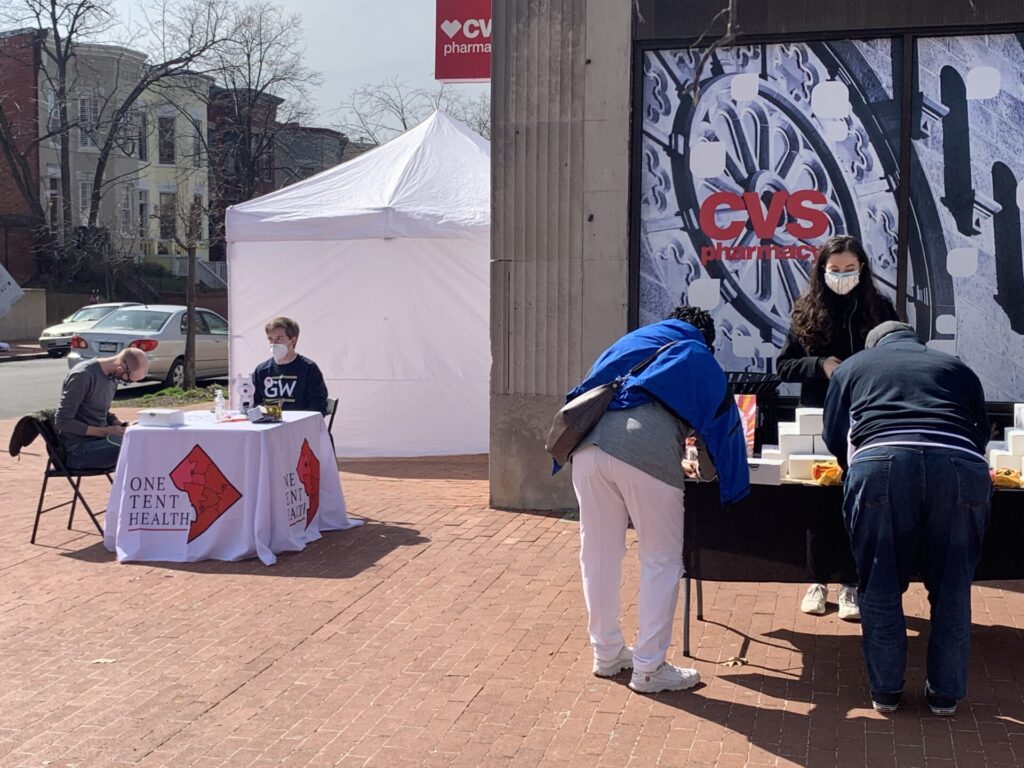
Q: One Tent Health is a youth-based initiative and organization. Why did you choose to pursue a youth-based model, and how do you think youth specifically can influence HIV care and testing?
At first, we chose the youth-based model because it was who we were. When we started, I was 21 and wasn’t being intentional about making a youth-based model; we were just thinking about making a model involving our friends and people around us. The other part was that a lot of young people in general have a lot of energy to go out and help people. I’m so glad I have my outlets now, but when I was that age, I had all this buzzy energy to go help someone but didn’t know how to get it out, or what avenues to take to do it. So, creating an obvious path for people to go out and do something directly: like offering an HIV test to somebody who needs it, really helps people actualize that innate desire. We create an easy path to action for a young person who says, ‘I want to help someone.’
Logistically, a lot of student volunteers are pre-medical students who want to go to medical school and have volunteer requirements to get in. We found this out after we designed the organization. It creates a natural push for volunteerism from young people too. We’re meeting a need that they have, and that the community has all at the same time.
I think that by creating pathways for young people to do HIV screening, you unlock a latent trust that people naturally have in young people. Medical mistrust is a huge issue, and it seems to keep a lot of people from accessing services, especially preventative services. It’s our working hypothesis, and so far we’ve found really good results: when someone sees a young friendly face, they’re quite likely to get a test and, almost more importantly, go into it calmly. Maximizing that trust before the result is critical, because people need to know that we’re going to guide them to the right people and the right care after their result. In that results moment, we want to minimize the variables. Having trust in the person who’s holding your hand is critical, and younger people, so long as they know what they’re doing, unlock a bit of trust quickly, which is really important especially during a rapid test.
Q: June 27 is National HIV Testing Day. What are you and One Tent Health doing to commemorate this awareness day – and how can other organizations across the U.S. encourage their communities to get tested for HIV on this awareness day and beyond?
This National HIV Testing Day, we’re organizing a testing event that we’re really excited about, as well as leading a training later on, the night of June 27, for our new and veteran student leaders who are preparing to take the reins this summer and during the upcoming school year. We’ve updated our student leadership structure to make a stronger team, share more responsibilities, and give the volunteer leaders more ownership in the organizing process. It’s a big step for us, and the ripples for our HIV testing that will come from the training on National HIV Testing Day will hopefully be fantastic.
In terms of how other organizations or groups of people can get the word out too, I think sharing HIV.gov’s “Where Can You Get Tested for HIV?” page would be really helpful. It’s a great site – you enter your zip code and can see a lot of the testing sites near you!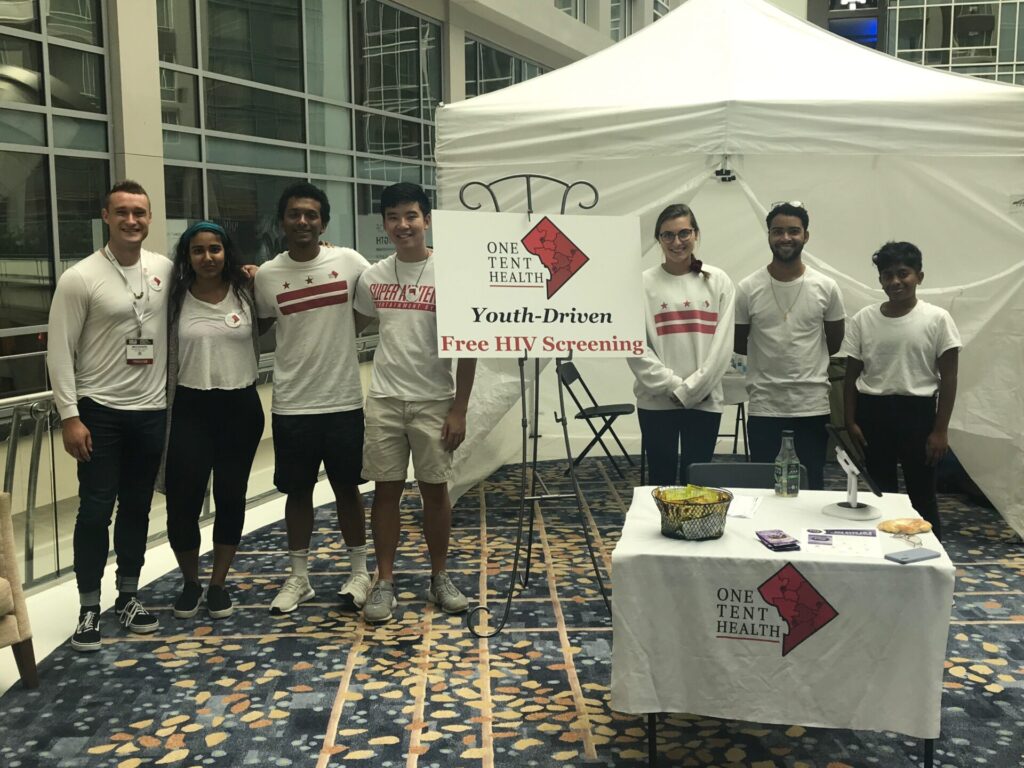
Q: What’s one message you want to communicate to everyone, but especially people in Washington D.C. communities, for National HIV Testing Day?
It’s a little bit of a different message, but, where it’s legal, I think we should have sample packs of PrEP ready to go a lot more often when we test. We’re learning and experimenting now, and it seems like using a standing order to start someone on PrEP is in-bounds and effective. As a clinic, you can really capitalize on that moment in the testing process, when someone is thinking about HIV risk more than usual and especially open to ways of protecting themselves, by offering a solution like PrEP right away. To end the HIV epidemic we need to help people become adherent to their treatment and protected by PrEP; you’d have to check your specific jurisdiction’s rules, but at least here in Washington, DC, it seems like a standing order is a good way to start someone on PrEP with a sample pack quickly, and then you can schedule a follow-up appointment for within the week to help that person stay protected and hopefully have a negative test next time too.
Between PrEP and U=U – if we can get everyone protected and virally suppressed, we’ll end the HIV epidemic together and we won’t need National HIV Testing Day in the future. I think that would be marvelous.


